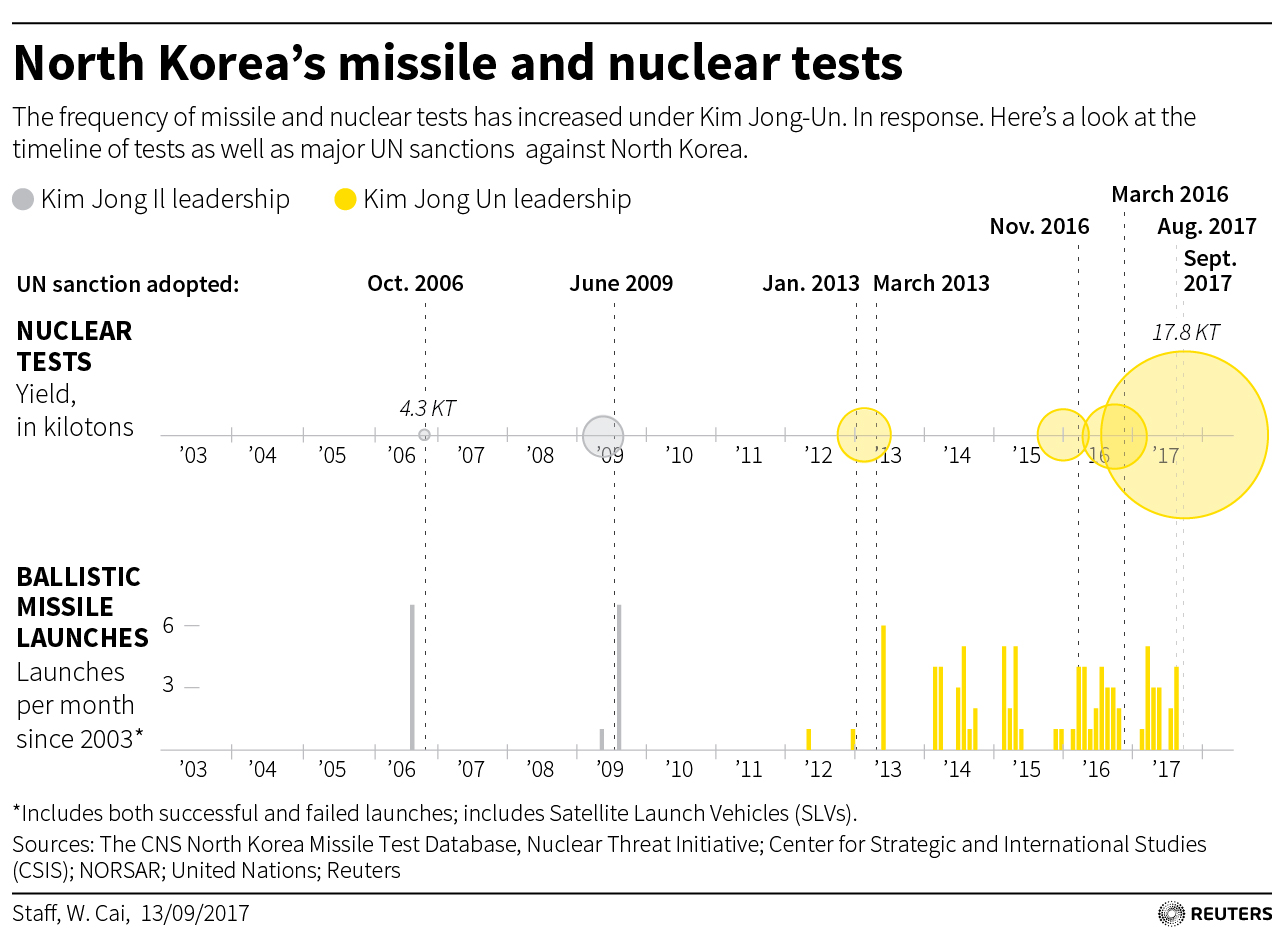
WASHINGTON (Reuters) – The recent warning from North Korea’s foreign minister of a possible atmospheric nuclear test over the Pacific Ocean should be taken literally, a senior North Korean official told CNN in an interview aired on Wednesday.
“The foreign minister is very well aware of the intentions of our supreme leader, so I think you should take his words literally,” Ri Yong Pil, a senior diplomat in North Korea’s Foreign Ministry, told CNN.
North Korean Foreign Minister Ri Yong Ho said last month Pyongyang may consider conducting “the most powerful detonation” of a hydrogen bomb over the Pacific Ocean amid rising tensions with the United States.
The minister made the comment after President Donald Trump warned that North Korea, which has been working to develop nuclear-tipped missiles capable of hitting the United States, would be totally destroyed if it threatened America.
CIA chief Mike Pompeo said last week that North Korea could be only months away from gaining the ability to hit the United States with nuclear weapons.
Experts say an atmospheric test would be a way of demonstrating that capability. All of North Korea’s previous nuclear tests have been conducted underground.
Trump next week will make a visit to Asia during which he will highlight his campaign to pressure North Korea to give up its nuclear and missile programs.
Despite the bellicose rhetoric, White House officials say Trump is looking for a peaceful resolution of the standoff. But all options, including military ones, are on the table.
The U.S. Navy said on Wednesday a third aircraft carrier strike group was now sailing in the Asia-Pacific region, joining two other carriers, the Ronald Reagan and Theodore Roosevelt.
Navy officials said the Nimitz, which was previously carrying out operations in support of the fight against Islamic State in Iraq and Syria, would be ready to support operations in the region before heading back to its home port. It said the movement had been long planned.
A leading South Korea opposition figure, Hong Jun-pyo, head of the conservative Liberty Korea Party, told Reuters in Washington on Wednesday he backed Trump’s tough stance.
Hong said he had met with members of Congress and the administration and told them a majority of South Koreans wanted U.S. tactical nuclear weapons, which were withdrawn from the Korean peninsula in 1992, returned, or for South Korea to develop a nuclear capability of its own.
“The only way to deal with the situation is by having a nuclear balance between the North and the South,” said Hong, the runner-up in South Korea’s 2017 presidential election.
Reintroducing nuclear weapons remains unlikely, not least because it would undermine demands from Seoul and Washington for North Korea to abandon its nuclear programs.
Trump spoke during his election campaign about the possibility of South Korea and Japan acquiring nuclear weapons, but administration officials have played down the remarks and given no indication of any plan to redeploy tactical weapons.
On Wednesday, Trump was asked whether he would visit the tense demilitarized zone dividing North and South Korea during his Asia tour and responded enigmatically.
“I’d rather not say, but you’ll be surprised,” he told reporters.
(Reporting by David Alexander, David Brunnstrom and Idrees Ali in Washington; Editing by James Dalgleish and Tom Brown)













